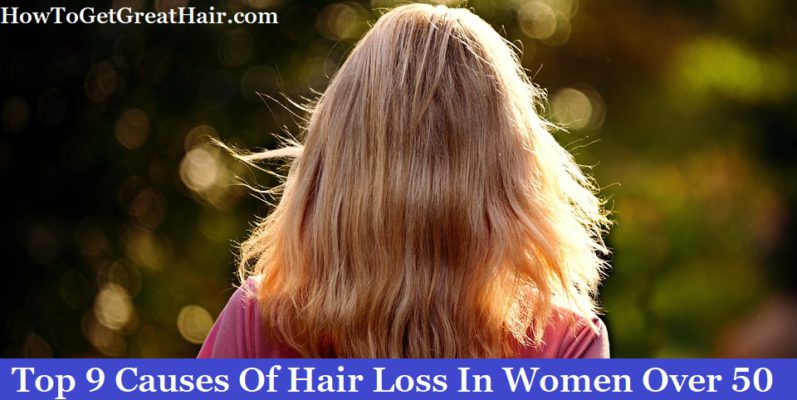
Is your hair falling out – and nothing seems to help? This can be really painful.
So what can you do about it?
- Find the cause behind.
- Try to treat it.
But finding out what’s wrong with your hair is the hardest part.
For this reason – here are the top 9 causes of hair loss in women over 50.
So if you happen to be above this age, your real problem has 80% chances to be on this list.
#1 – Hormonal Changes
Have you recently been through menopause?
You might not know it – but that’s actually the #1 cause of hair loss in women over 40-50 all over the world.
1. Why?
Once you reach menopause, your hormone levels decrease suddenly.
That’s why you start experiencing lots of weird symptoms:
- Hot flashes
- Joint pain
- Sudden headaches
However – this drop in hormones also affects your hair. [1]
In fact – about 50% of women experience shedding after going through menopause.
Some only lose a few hairs, while others deal with a severe hair loss. Basically – it’s all about luck.
2. Solutions
Besides hair loss, menopause has other dangerous effects on the long term:
- osteoporosis
- weaker muscles
- drop in skin elasticity
For this reason – it’s important to visit your doctor as soon as you reach this stage.
Though it’s a natural process, menopause can lead to secondary problems.
That’s why a prescribed treatment could keep you safe from these issues. Plus – it could also save your hair.
#2 – Hair Dye
It might seem funny – but dying your hair can actually have a severe impact on its health.
In some cases, it can also cause shedding.
1. Why?
This is more of an allergic reaction than a real cause of hair loss.
- Hair dye is usually full of chemicals (more or less dangerous).
- Certain people are allergic to some of them.
- The symptoms only come up after using the hair dye.
So what happens if you dye your hair and you’re allergic to the product you used?
Well – you’re probably going to experience some local symptoms:
- itchy scalp
- red patches
- dandruff
- dermatitis
However – in some cases, this allergy is more severe, causing general shedding or bald spots. [2]
2. Solutions
First of all – always test the hair dye before using it.
- Apply a small dot on your hand.
- Wait for 10-20 minutes.
- Check out the area around.
If it doesn’t get red and itchy, you’re not allergic to the hair dye. This means you can use it for your hair.
But if you want to stay risk-free, try using a natural hair dye.
Coffee is great for darkening hair, while lemon juice and honey can help lightening it.
#3 – Scalp Problems
If your scalp is unhealthy, your hair will suffer immediately.
Believe it or not – scalp disorders are a serious cause of shedding.
1. Why?
First of all – there are several scalp problems that can affect the hair:
- folliculitis
- scalp ringworm
- alopecia areata [3]
Out of these – only the last 2 cause hair loss directly (bald spots).
On the other hand – minor scalp problems affect the hair in a different manner:
- Weaken follicles.
- Make your scalp itchy and sore.
- Scratching can break follicles.
In this way – your hair starts falling out massively.
That’s why scalp problems are way more serious than they seem.
2. Solutions
In cases like these, consulting a dermatologist is a must.
You might have a minor dermatitis – but you might also have a serious scalp infection.
So if you want to take care of your hair – visit your doctor for any scalp symptom that seems unusual.
#4 – Major Weight Loss
Have you recently been through a weight loss diet?
If you saw positive results in terms of weight – it might be all negative when it comes to hair.
1. Why?
Shortly – it’s all about nutrients and proteins.
Certain diets promote giving up meat, sugars or fats. Now – that’s surely not a bad thing.
But in most cases, not eating enough proteins can seriously affect your hair:
- Hair is mostly made of proteins.
- During a diet, your body may get a protein deficiency.
- In this way, your hair’s structure and strength will suffer.
But it’s not all about proteins.
Dieting can also cause a vitamin or mineral deficiency – which is even more serious.
For this reason, losing weight very fast is quite dangerous for your hair.
2. Solutions
Fortunately – there are some thing you can do about it:
- Choose a diet that doesn’t request you to give up meat or natural foods.
- Make sure you also exercise.
- Drink plenty of water and never starve yourself.
- Don’t ignore the symptoms your body gives you.
My recommendation would be to visit a nutritionist before following any diet.
In this way – you will have your personal weight loss plan (adapted to your body’s needs).
This kind of diet will surely not affect your hair – or your general health.
#5 – Genetics
Do you remember your mother having hair loss issues?
Or did your grandmother experience any shedding?
If yes – your family history may be responsible for your hair loss.
1. Why?
Truth is – there isn’t a clear explanation why hair loss runs in the families.
But here’s the thing:
- Women can also experience genetic hair loss (not just men). [4]
- Usually, female genes are involved.
- Your father’s hair history doesn’t matter much.
In other words – it’s not important if your father or uncle were both bald.
Genetic hair loss is linked to your mother’s side.
So if any women from your mother’s side suffered from hair loss over 50 – there’s also a small risk for you too.
2. Solutions
This is probably the worst cause of hair loss.
Why? There isn’t much to do to prevent/stop it.
- Hair growth shampoos can help.
- Supplements are very effective.
However – none of them could keep your hair healthy, if falling out is in its nature.
But my personal advice is to try a vitamin cure and start using a hair supplement.
These can prolong your hair’s life and health for (at least) several years.
#6 – Wrong Supplements
Have you started taking any supplement recently?
Or instead – is there any supplement that you’re taking for more than 6 months?
If the answer is yes, this could be damaging your hair.
1. Why?
Normally – supplements are meant to treat deficiencies.
But in some cases, they can have the opposite effect – cause an excess.
So here’s the question. What substances can cause hair loss if their level is too high?
- Zinc
- Selenium [5]
- Vitamin A
- Vitamin E
Sure enough, there are some others – but these are the most common.
Surprisingly – all of them can boost hair health normally.
But if their level is too high, the effect is totally opposite.
2. Solutions
What you have to do is simple:
- Never take a supplement randomly.
- Have a blood test before and consult your doctor.
- Only take a vitamin/mineral supplement at his recommendation.
- Don’t take it for more than 6 months (only if required).
Basically – don’t take zinc just because you heard it’s helpful.
It does help the hair, but maybe your level is already high.
If you also take a supplement, that would surely be too much (even for your hair).
#7 – Smoking
Surprisingly – smoking is one of the top causes of hair loss in healthy women.
So even if you recently quit, there’s still a risk that it affects your hair.
But that only if you were a big smoker throughout your life.
1. Why?
Smoking itself is harmful for your body – that’s not something new.
But how exactly does it affect your hair?
- Weakens hair follicles.
- Increases breakage.
- Decreases hair nourishment.
- Promotes oxidative stress and aging.
Basically – smoking itself doesn’t cause hair loss. But it harms hair in general. [6]
And everyone knows that damaged hair is more likely to fall out.
Plus – as you’re over 50, your hair isn’t as healthy as it used to be in your youth.
2. Solutions
It’s pretty simple – give up smoking and go for a natural lifestyle.
If you’re an alcohol lover, I would also recommend giving it up (at least partially).
However – if you smoked for 30 years of your life, giving it up now won’t help that much.
- your hair is already in a bad shape
- the toxins affected its structure
But if you want to save as much hair as you have left, it’s important to stop smoking.
#8 – Stressful Event
Traumas are a serious cause of sudden cause of hair loss.
And if you’re over 50 – your hair is more likely to be affected (compared to a young women):
- roots are weaker
- follicles recover harder
1. Why?
Now – it’s pretty obvious what a trauma means.
But how exactly could it affect the hair – assuming you’re not pulling it out?:
- Makes your follicles stop growing.
- They get directly into resting phase.
- This phase lasts 3 months.
- After this time, they fall out.
So basically – if your hair was affected by a trauma, it will fall out massively, out of the sudden.
However, it won’t happen immediately after hearing the bad news.
Instead – it will happen around 3 months afterwards, which is a clear sign.
Obviously, your hair loss may be milder or more severe – depending on:
- your body’s ability to face the stress
- your hair’s strength
Some people aren’t even affected at all – so it’s somehow a matter of luck.
2. Solutions
Unfortunately – this kind of reaction is impossible to prevent.
But there are some good news too:
- hair usually grows back on its own
- there are no bald patches left
Shortly – all you need is patience and a good hair supplement, which will speed up the process.
#9 – Medical Conditions
It’s pretty obvious – major health problems can also cause shedding, as a secondary effect.
1. Why?
It all has to do with the nutrients your body receives.
As you have a medical problem – vitamins/minerals deficiencies are quite common. So this will also affect your hair (on the long term).
But that’s not all.
Some conditions cause hair loss themselves:
- auto-immune arthritis
- lupus
- thyroid problems
Obviously, the list is much longer. So if you’re suffering from a chronic disease, this could be the responsible.
2. Solutions
In this case, there are few things you can do:
- Keep your condition under control.
- Take all of your prescribed drugs.
Hair loss is just a secondary reaction – but not following your treatment will make your condition worsen.
And that’s way more dangerous than hair loss.
So What’s Causing Your Hair Loss?
First of all – menopause is the #1 responsible at your age.
However, it’s not always the cause. Some other factors can make your hair fall out:
- stress/trauma
- scalp allergies or disorders
- bad eating habits
- wrong supplements
- family history
- your health problems
Basically – the hardest part is to find out the real responsible.
Once you do this, getting the proper treatment is quite easy.
For this reason – try to investigate all your symptoms, previous actions and even your family history.
My #1 Recommendation: There is a product I recommend for hair loss (especially when it’s caused by a clear cause).
It’s called Folexin and it’s my favorite hair supplement:
- Works for both hair loss/growth.
- Effective for men and women.
- Really good formula overall.
- Cheapest product of this kind that I know.
Now – this supplement isn’t a miracle maker, so it won’t cure your hair loss in 2 weeks.
But it’s surely effective for decreasing it – and it’s pretty fast too (1-2 months in my case).
And considering it’s way cheaper than most supplements, it’s my #1 recommendation right now.
1 – https://www.ncbi.nlm.nih.gov/-pmc/articles/PMC4828511/
2 – https://www.hindawi.com/-journals/isrn/2011/947284/
3 – https://www.health.harvard.edu/-a_to_z/alopecia-areata-a-to-z
4 – https://www.health.harvard.edu/-staying-healthy/treating-female-pattern-hair-loss
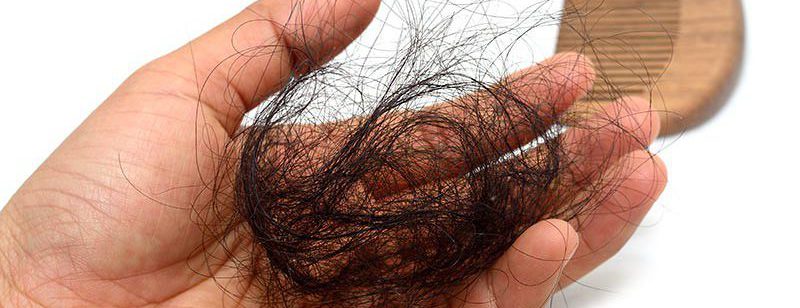
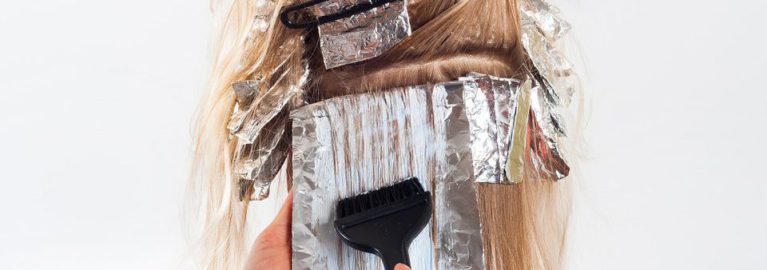

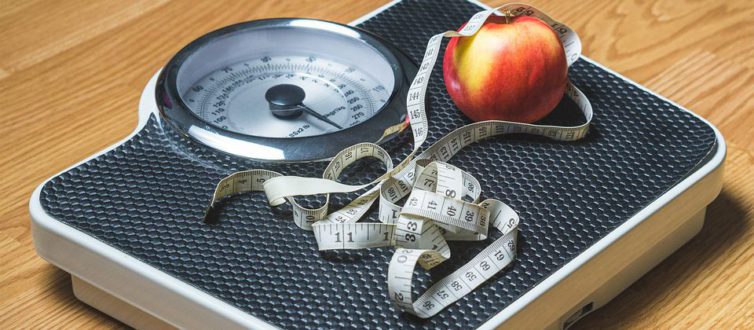
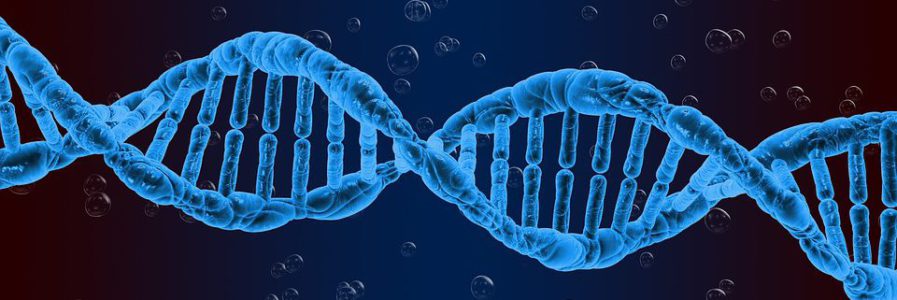

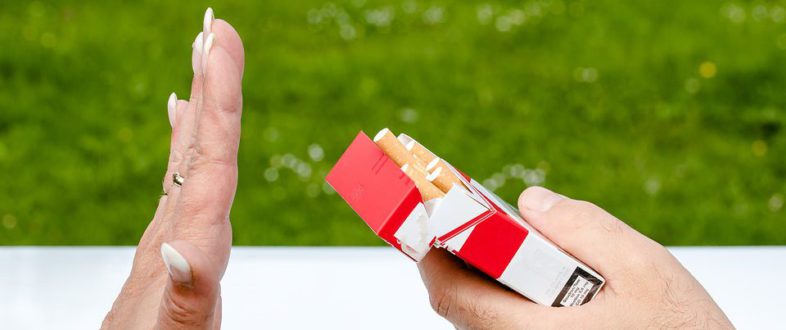
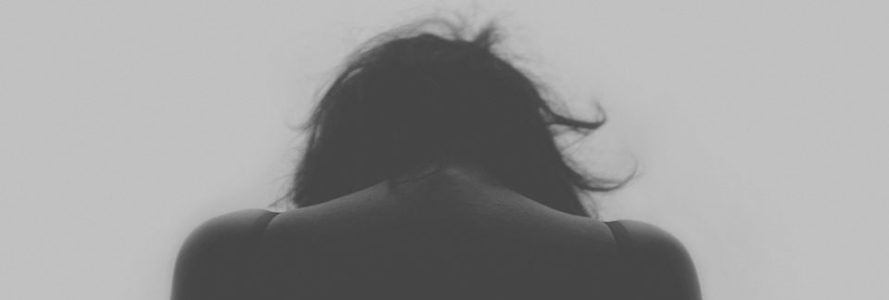


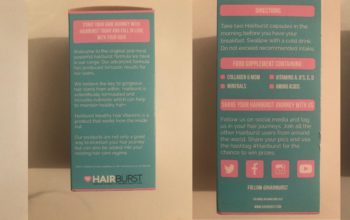
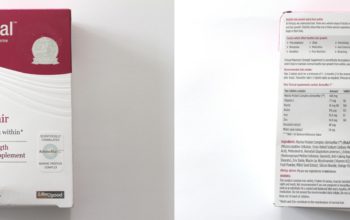
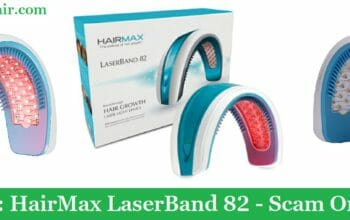
Hi Olly, thank you for the information from this article. I’m a 62 y.o woman with rheumatoid arthritis and Crohn disease. I’ve had this condition for more than 10 years and I managed to keep them under control with medication, diet and regular exercise. While going through menopause, I experienced very few uncommon issues. My hair also seemed unaffected. But about 3 years later, it started thinning and falling out severely. My doctor said it’s a late effect of menopause and prescribed some Minoxidil 2% together with some Biotin and vitamins. But it just felt a little weird to me to experience this kind of sudden hair loss 3 years after… I had also started a new treatment for my RA at that time, with prednisone. My specialist said it’s not the prednisone making my hair fall out, but I feel like he just said it to convince me to stay on the treatment. After doing some research, I found out that prednisone alone can cause hair loss, even massive one. What do you think I should do now?
Hi Mayra. First of all, hair loss is a symptom of auto-immune conditions (in some cases). Both RA and Crohn’s disease belong to this group, so simply having these conditions could make your hair fall out.
However – as the shedding was quite sudden and you’ve had both conditions for over 10 years with no hair loss, I doubt it’s because of them.
Also, in my opinion, menopause isn’t the cause. If it was, your shedding should have begun at most 1 year after the first symptoms. But 3 years is already too much.
So if you ask me, it’s prednisone causing your thinning and shedding. That’s also one of its main side effects – but it doesn’t appear in every person. You were probably unlucky to experience that.
Now – I agree that your doctor said prednisone doesn’t have anything to do with your shedding just to make you stick to it. So what could you do? Change the doctor, that’s what I would do. Visit a new specialist and tell him about your problem – he will surely understand and take you off prednisone. He can change it with something else, as there are so many options available.
You can also ask him to prescribe you a supplement. I could recommend you several, but if you already have RA – you’re probably taking a ton of medicines, so there’s a high risk of interactions. You would have to ask your doctor’s advice anyway, so it’s better to have him recommend you something from the start.
Hope this helps.
Hello Olly. I’m in my 50s and suffering from severe hair loss for several months. My doctor says it’s the consequence of my rapid weight loss, I went from 250 lbs to 150 in less than 2 years. But that happened in 2017, how could I see the effects only now which is 2 years later? Would this be possible? After losing so much weight I was prescribed several supplements that I’ve been taking ever since: some multivitamins and a mix of selenium and zinc. Is there any chance that they are affecting my hair or there’s no possibility? I’m trying to see all situations because I find my doctor’s opinion a bit weird…
Hi Nat. You’re pretty much right – losing a lot of weight can’t affect your hair 2 years later. Or if it does, that’s not the main cause.
Basically, a major weight loss in a short time can produce shedding. But it should happen pretty fast, in about 3-6 months. At most, 1 year. However, you can’t lose your hair 2 years afterwards and blame that weight loss from the past. So your doctor isn’t right here, as far as I’m concerned. My advice is to seek another opinion and consult another specialist, I’m pretty sure he will disagree with your first doctor’s opinion.
But there’s something that caught my eye. You said you’re taking multivitamins, zinc and selenium since 2017? That would be 2 years now. Certain supplements can cause hair loss as a secondary effect, especially if they’re taken for long periods without breaks. And zinc and selenium are on that list.
So in my opinion, they could be the actual cause behind your shedding. But I would need some more details to tell for sure. So the best thing you can do right now is to consult another doctor, tell him about your problem and about this hypothesis (that your supplements could be affecting your hair). He will probably have you take some blood tests to check your zinc and selenium level and he could see if that’s the actual cause.
That’s all I can think about now. If you can come back with more details, I might be able to help more.
I think I’ll ask around if there are any hair loss treatments being offered in my town that my mother can get. She is anxious to go outside lately because of her bald spots, and she thinks that people will judge her unless she gets a head full of hair again. Thanks for clarifying that she might be experiencing this because she has entered her menopausal stage, so I’ll be sure to tell her about this.
Hey Angela, I’m really sorry to hear about your mother’s problems. If she entered menopause recently (in the last 3-4 years), her hair loss is most likely cause by this stage.
I don’t know where you live and what treatments there are in your region. But here’s what I usually recommend for hair loss caused by menopause:
1) A quality hair supplement is the most important product. I usually prefer the ones based on herbs (as they are the most natural and they also have the fastest/strongest effect). Folexin is my top choice, as it has by far the best price on the market from this category (best quality/price ratio). In case you want some other alternatives, you can try a product called Nutrafol, which has a special form for menopausal women. The only issue is that it’s very expensive (about $90 per bottle). Other than that, it’s a great product. Additionally, you may want to check this list on my top 7 recommended hair loss products.
2) Your mom can start rinsing her hair with a green tea infusion. This herb blocks DHT receptors on the surface (DHT levels get higher after menopause so they cause hair loss in women). She can also use herbs like turmeric or apple cider vinegar, both for rinsing.
3) Until your mom starts seeing results (it’s going to take a few months), she should try hair fibers. These are only an aesthetic solution, but they cover the bald spots and give the impression of fuller hair. Until her hair regenerates and starts growing normally, hair fibers can help tremendously. Among the brands I have reviews, my top recommendation is Caboki. Their fibers have a great quality and can be left in the hair overnight (most of the others have to be rinsed daily before bedtime, otherwise they will stain the sheets).
4) Adding certain food in your mom’s diet can also help her. Make sure she has plenty of proteins, fruits and vegetables and that she avoids junk food and fries. There isn’t a certain diet that works best for hair loss, but eating healthy can keep the hair in a good shape.
In case you find a product/treatment in your local stores, you can add it to these recommendations. I hope this helps.